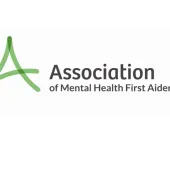Mental Health: the issue of our time

British Safety Council responds to the Stevenson-Farmer review into workplace mental health
THE British Safety Council has responded to the recommendations of the review into workplace mental health, which was commissioned by the Prime Minister on 9 January 2017, led by Paul Farmer, chief executive of Mind, and Dennis Stevenson, and published on 25 October in the report ‘Thriving at Work’.
The review makes recommendations on how employers can support all employees, including those with poor mental health, so they remain in the workplace and thrive. The review also urges employers to adopt six mental health standards that would act as cornerstones of good mental health practice and culture.
Louise Ward, communications and policy director at the British Safety Council, said: ‘It is our vision that no one should be injured or made ill at work. Great progress has been made on addressing safety issues and reducing accidents and injuries in the workplace, but there is still significant work to be done on well-being and health, particularly mental health.
‘Mental health is very much the issue of our time and there is still much to be done in dispelling the stigma that surrounds the subject and facilitating access to help and support.
‘Defining and contextualizing mental well-being, as distinct from mental ill health, and recognition of the multitude of contributory factors is particularly helpful, as it establishes the scope for the recommendations, and confirms that good work is a positive contributor to mental well-being.
‘In recent months, we have seen increasing publicity and awareness of the human impact of mental ill health, but the statistics included in the report clarify the extent of the problem and demonstrate a return on investment of programmes designed to promote mental well-being.
‘We believe that employers will welcome the proposed core standards and supporting guidance, as this will help to establish a benchmark for good practice.’
However, the British Safety Council is concerned about the ability of businesses, particularly SMEs, to resource the interventions required to achieve this benchmark. It also welcomes suggestions that the Government should consider financial incentives to support this work.
‘Employers are likely to require information and advice to support development of mental well-being programmes and it will be important to provide a mechanism to facilitate access to ‘quality assured’ tools and providers. The proposed single online portal would be welcomed, but would need to be properly resourced to ensure that it delivers effectively against expectations,’ continued Ms Ward.
‘It will also be important to ensure that good intentions do not result in an increase in ‘blue tape’ requirements that might put more pressure on businesses, particularly SMEs.
‘The recommendations set out in the report will place significant demands on the already stretched NHS and public sector. We are concerned that additional resource will be required to meet these demands, and care will be required to mitigate the impact that workload increases could have on the mental well-being of staff employed in these areas.’
She added: ‘We recognize the complexity of regulatory activity in the field of mental well-being, and welcome the report’s call for improved clarity in this area. Regulatory resources are already stretched, particularly at the local authority level. Therefore, it will be necessary for the Government to ensure that resources and training are available for regulators if they are to take on additional accountabilities.
‘Publication of this report represents a key step forward in the recognition of the importance of mental well-being to the modern economy, society and culture.’









